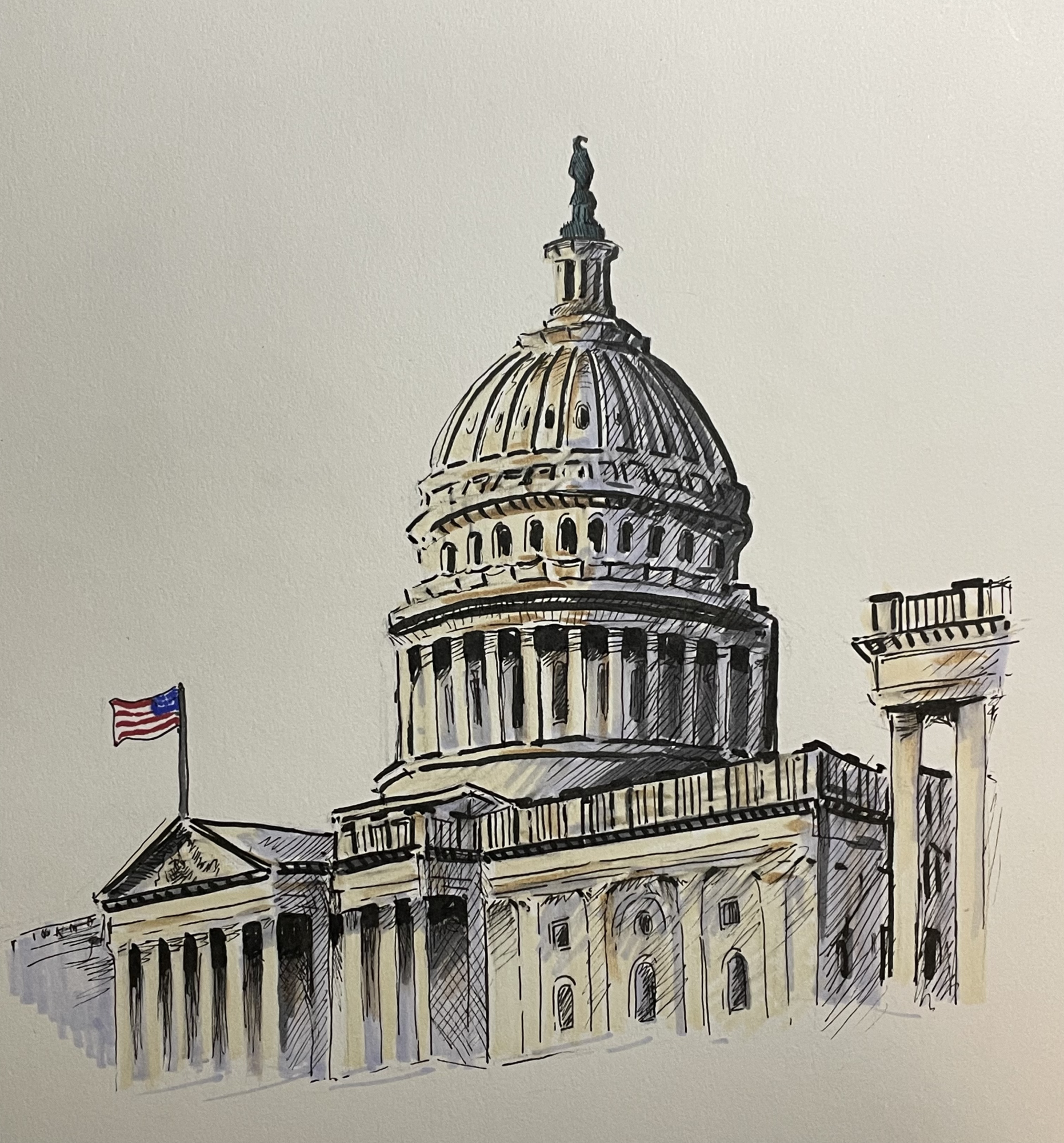The House of Representatives is the largest part of the legislative branch and has the most elected officials of any other section of the federal government. With 435 members, each representing around 600,000 Americans, their impact is gradual. You may hear the names Matt Gaetz, Alexandria Ocasio-Cortez, Marjorie Taylor Greene, or, as I put it, the people who cause chaos and division in Congress. Division in Congress means a lack of legislation and a failure of our elected officials to deliver for us, the American people.
Within Congress, there are small structures called caucuses. Caucuses are groups of congress members who aim to achieve certain goals. For example, the Congressional Black Caucus to ensure equal representation among minorities, the Climate Solutions Caucus for Climate Change, or the Freedom Caucus for more conservative ideals. Sure, they all have great impact and serve a purpose, but, in the modern day, they aren’t exactly a unifier; they are more of an important concept of representation.
The U.S. has a two-party system—Republican and Democrat. Yes, there are third parties, but independents traditionally only compose a tiny fraction of Congress. The two-party system causes divisions in this country; that’s the modern-day issue we face. The division is not necessarily caused by the American people but by the politicians who attack each other just for disagreeing. There is loyalty to the person one voted for, and that’s fine, but it does cause tensions.
If we did not have politicians attacking each other, I believe the American people would be more united. One example of this in action is the Problems Solver Caucus. The Problems Solver Caucus contradicts all slackers and dividers of Congress. Chaired by Congressman Josh Gottheimer and Brian Fitzpatrick, a Democrat and a Republican respectively, this caucus aims to unify the parties.
With 32 Democrats and 27 Republicans, the ratio is nearly balanced. This caucus is filled with individuals who frequently sponsor bills alongside members of the other party to develop pragmatic solutions to real and important issues. During the COVID-19 pandemic, the Problem Solvers Caucus played a central role in bipartisan deals of COVID-19 relief, immigration reform, healthcare, and other policy issues, such as combating antisemitism and implementing fair tariffs.
Both parties want what’s best for America, but see it in different ways. There are issues both Republicans and Democrats care about but fail to find common ground around, yet collaboration on the issues that matter is the ideal the Problem Solvers Caucus is all about. A sense of unity, certainty, and ease to the general public.
This caucus is rated one of the most active caucuses in the House of Representatives and the only caucus surrounding bipartisan issues. Working together, across the aisle, on problems that matter will result in unity. We are divided because of parties, but the Problem Solvers caucus challenges this by working together. Having leaders challenge the problems we face is a crucial element of why we elect them in the first place. Any member of the Problem Solvers caucus, Democrat and Republican, is overqualified for their role because they understand something most don’t: you have to work with the other side to get things done.
Editorial Note: Contributing writer Mason Dwek did work for a congressman who is also a member of the Problem Solvers Caucus this past summer of 2024.







